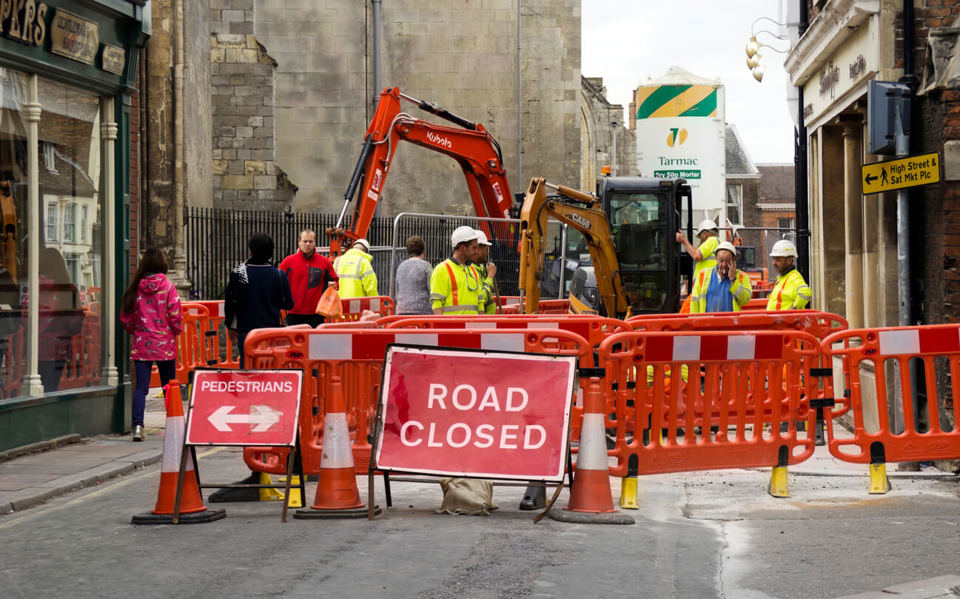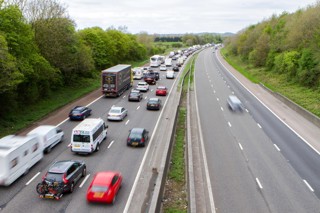The Government has outlined a series of measures focused on minimising disruption over the Christmas period, including the removal of 778 of miles of roadworks.
The plan for the Christmas travel window, between December 23 and 27, also includes enhanced rail services, postponing and accelerating rail engineering works and cutting ticket charges.
The Government says it is also working closely with transport operators to establish priority areas for testing of workers, to maintain and maximise services.
Transport Secretary Grant Shapps said: “With many people carefully considering whether to travel to see loved ones this Christmas, we’re taking steps to try to ease journeys.
“Clearing 778 miles of road works and postponing rail upgrade works will ease congestion, minimise disruption and allow extra services to run.”
The Government says it is also working with the devolved administrations on its plans to ensure they take an aligned approach as far as possible.
Government travel tsar Sir Peter Hendy said: “Throughout the pandemic, the transport industry has been united in its efforts to keep passengers and staff safe. We must ensure that shared focus continues at this important time.
“The measures announced today will help ease congestion, boost capacity and minimise disruption for travellers. I will continue to work closely with all operators and offer recommendations that will see people home safely for Christmas.”
Travellers are being urged to closely consider the timings of any journey and consider quieter routes.
On rail and coach services, passengers should book in advance. Long-distance rail operators, including LNER and Avanti West Coast, already require passengers to have a ticket booked with a seat reservation, enabling social distancing.
For operators where passengers can still turn up and go, passengers are urged to book ahead, follow the guidance on social distancing closely, avoid the busiest times and consider using alternative forms of transport for shorter journeys.
Whatever the journey, people are asked to plan carefully, book ahead where possible, and be prepared for journeys to take longer than normal, the Government said.
Measures outlined today include:
Road
- An additional 288 miles of maintenance works will be removed, with a total of 778 miles of roadworks on motorways and A-roads now cleared.
- Where essential roadworks must continue speed limits will be set at 60mph where possible, including on key routes such as the M6 and M1, to keep disruption to a minimum.
- Ministers have written to all local authorities with the request that they lift as many roadworks as possible and ensure bus services are running reliably over the period, to ease traffic on local roads.
- Ministers have also written to all local authorities to ensure winter preparedness, with around 70% confirming they will modify gritting routes to ensure testing centres are covered.
Rail
- The Government is waiving change of journey admin fees for Advance tickets purchase before new Covid tiers were announced on 26 November, enabling fee free changes and ensuring passengers are not left out of pocket for complying with the new Covid restrictions.
- Longer trains will run on Anglo-Scotland and Liverpool routes to boost the number of seats at anticipated busy times on the West Coast Main Line. Chiltern Railway will also run additional services on the 27 December, and East Midlands Railway will run a full intercity timetable over the Christmas period.
- Over 95% of the rail network will be unaffected by engineering works. Network Rail have altered their plans and the works on the East Coast Main Line will be postponed at the end of service, allowing additional services to and from King Cross on Christmas Eve. Works on the West Coast Main Line will also be completed earlier on the 27th, to enable a full Sunday service to run from 10am rather than midday, making it easier for passengers to return from their Christmas bubbles.
- Rail engineering works such as the East Coast Upgrade have been planned for two years. Cancelling or delaying these works would see benefits to punctuality, safety and reliability deferred by up to two years. Significant extra road capacity will be in place where demand is greatest.























Login to comment
Comments
No comments have been made yet.